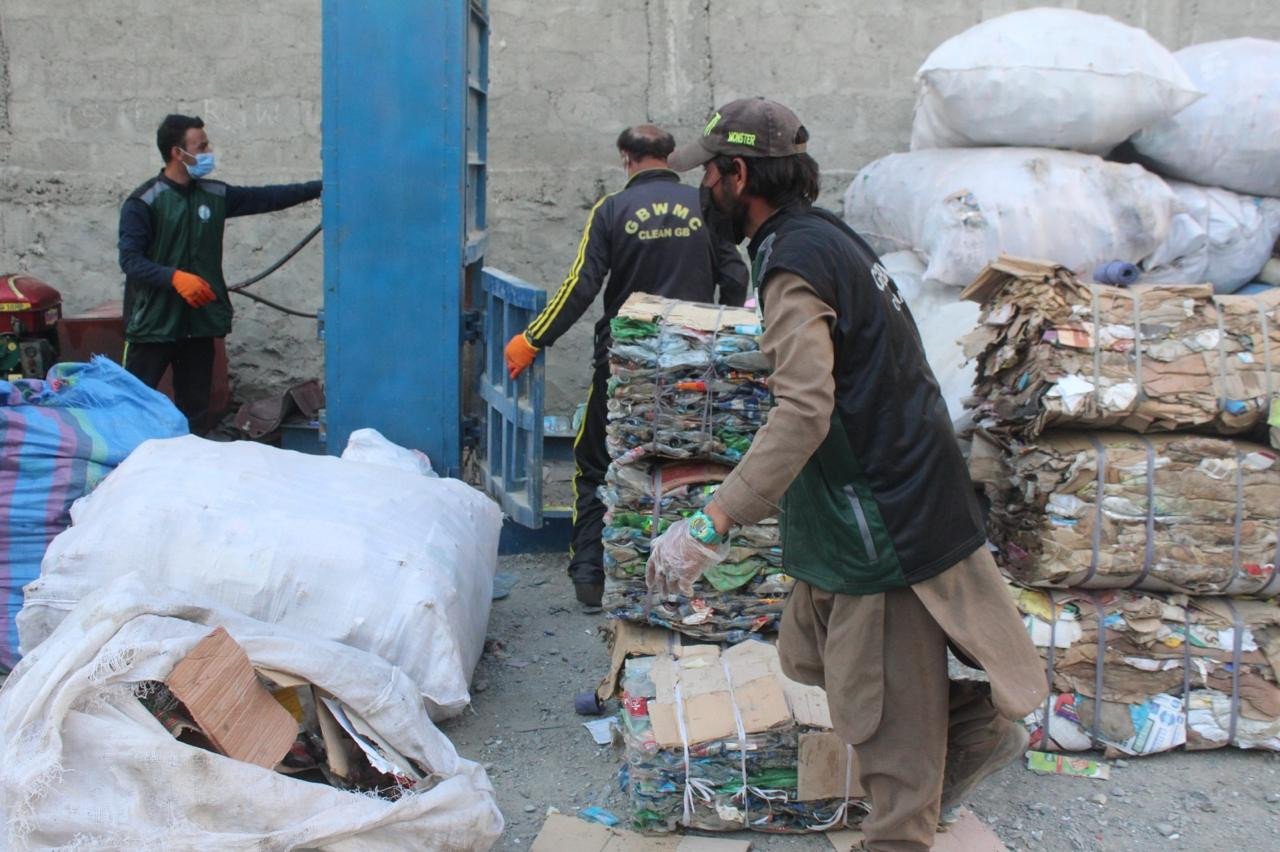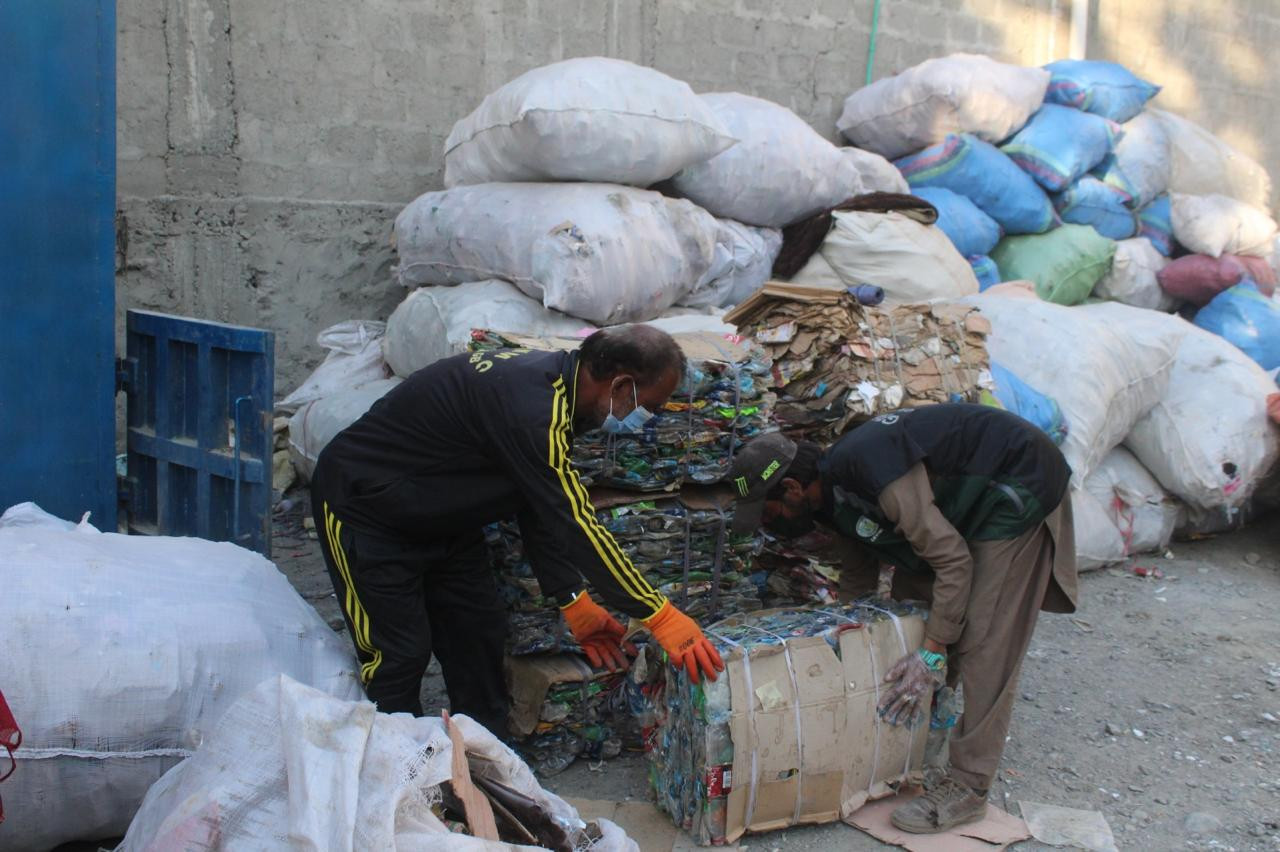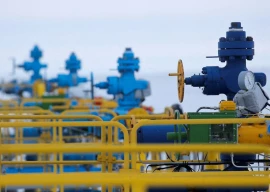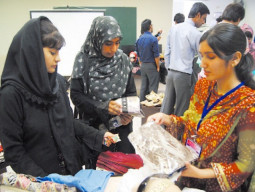
The government of Gilgit-Baltistan (G-B) has disbursed Rs24.5 million in interest-free loans to reduce plastic bag usage and promote green alternatives. This microcredit lending programme is part of G-B’s efforts to incentivise businesses to invest in biodegradable or reusable options.
Recently, the G-B government introduced a microcredit lending programme, allocating Rs150 million in interest-free loans for green business entrepreneurs. These funds, sourced through the Gilgit-Baltistan Environmental Protection Agency (GB-EPA) and the Gilgit-Baltistan Rural Support Programme (GBRSP), support the “plastic-free Gilgit” initiative. The loans are one-time with a return period of one year and no renewal option.
Speaking to The Express Tribune, GB-EPA Director Shehzad Hassan Shigri explained that the scheme includes interest-free microcredit in three categories: women-led enterprises, wholesalers, and large-scale manufacturers. The government decided to involve the private sector in the anti-plastic bag movement, recognising the need for viable alternatives before implementing bans to avoid inconvenience. Options like reusable bags made from sustainable materials, paper bags, and biodegradable bags were considered viable substitutes.

Currently, a substantial quantity of non-woven, cloth, and paper bags are available in the market. Shigri praised the efforts of manufacturers and suppliers of these alternatives and pledged support for their businesses.
The initiative offers financial incentives to businesses producing biodegradable bags or switching to them, helping offset the costs associated with transitioning from traditional plastic bags. When asked, Ahmed Ali Siddiqui, Director of the IBA Centre for Excellence in Islamic Finance, noted that interest-free loans are consistent with Islamic principles and encourage small entrepreneurs to foster sustainable social responsibility.
So far, the GB-EPA has disbursed Rs24.5 million in loans through GBRSP under the G-B government. The loans, distributed only in the Gilgit district, include two loans worth Rs19 million, three loans worth Rs3 million, and five loans worth Rs2.5 million. Additionally, four loans of Rs0.1 million each have been disbursed, with one still pending.
GB-EPA has invited loan applications from the districts of Hunza, Ghizer, and Nagar, with loans to be disbursed after thorough scrutiny. A non-woven bag production unit, inaugurated in Faizabad, Nomal, has a capacity of one tonne per day, 30 tonnes a month, sufficient to meet and exceed Gilgit’s needs of 16 tonnes. The remaining can be exported to other regions in the country. Another unit in Singul, District Ghizer, will be inaugurated soon.
Bins and Benches
In Skardu’s Shangrila Lake and Sadpara Lake, and the Gilgit district within the Karakoram Range, the government’s plastic offset initiative is evident through the use of bins and benches made from recycled plastic – standing as prime examples of closing the loop. This innovative approach highlights a commitment to minimising waste and maximising resource efficiency.
In this harmonious cycle, discarded plastics find new life, not as pollutants, but as integral components of functional infrastructure, embodying the ethos of sustainability and circularity.
GB-EPA’s plastic offset initiative has gained momentum with the recent involvement of Swiss water giant Nestlé in its bins and benches project. Nestlé’s participation in the campaign underscores the G-B government’s proactive efforts to address plastic waste and promote sustainability. This partnership also marks G-B government’s effort in advancing innovative solutions to mitigate plastic waste’s impact in G-B-Pakistan’s picturesque landscape and the “tourist province,” Shigri revealed. So far, Nestlé has installed three PET bottle crushing and bailing machines, established three PET collection centres in Gilgit, Skardu, and Hunza, and contributed to G-B’s PET awareness campaign, he said.
As per the arrangement, Nestlé has also installed two waste segregation systems in Gilgit and Skardu as part of an MoU with GB-EPA, approved by the G-B Cabinet. This initiative is part of the G-B government’s Plastic Free campaign. Similar units will be established in Diamer and Baltistan Division in collaboration with GBRSP under the Green Business Development Programme to make G-B plastic-free and promote green businesses and jobs.
Nestlé’s Manager of Public Affairs, Muhammad Rahat Hussain, confirmed the development and added that benches and trash bins made from recycled plastics have been installed at tourist hotspots in Gilgit, Hunza, and Skardu, including Gilgit City Park, Attabad Lake, and Hussaini Bridge – Hunza, Upper Kachura Lake, Lower Kachura Road, and Viewpoint Sadpara Lake – Skardu, he said.

1724760612-0/Untitled-design-(12)1724760612-0-405x300.webp)
















COMMENTS
Comments are moderated and generally will be posted if they are on-topic and not abusive.
For more information, please see our Comments FAQ